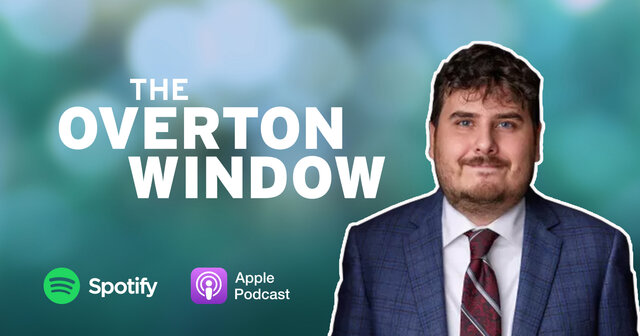
People in power have a longstanding desire to shut down debate that challenges their views. And even though American colleges and universities are supposed to stand up for academic freedom and open debate, they have trampled on their students’ First Amendment rights. Ryne Weiss is doing something to change that. As director of research at the Foundation for Individual Rights and Expression, he’s helping administrators do better at allowing students and faculty to talk about controversial matters.
Weiss's advocacy for free speech puts him between partisans on both the right and the left who try to restrict the First Amendment rights of their adversaries.
The conventional problem for Weiss is that overzealous administrators would police students for speech considered offensive to progressives. “That was the status quo for how threats to free speech on campus were happening,” Weiss says. Colleges would also require faculty members to conform to university policies on diversity, equity and inclusion that intruded upon their academic freedom.
The challenge has been evolving recently. Some state governments have issued regulations to stop teaching wokeness in colleges, which FIRE attorneys argued went too far in restricting professors’ free speech rights.
“It becomes demoralizing to see the victims of attacks on free speech become the attackers,” Weiss says.
It hasn’t been all bad for the First Amendment on campus. Weiss mentions a 2015 statement from the University of Chicago in which the school took a stance in favor of academic freedom and its students’ free expression. Other colleges have adopted similar positions.
To encourage good behavior and discourage bad behavior, Weiss grades schools on for how they respect free speech and ranks how schools stand relative to each other. Everybody loves a college ranking. “We want to pin down actionable areas where colleges can improve their environments for free speech and provide them an incentive to improve,” Weiss says.
“Some universities with great speech policies have a really bad environment for free speech,” Weiss says. “So we created the free speech rankings to give a more holistic and nuanced view of free speech on campus.” The foundation’s rankings include a student survey that asks about self-censorship, confidence that administrators protect student's rights, speakers allowed to appear on campus, and other topics.
The free speech rankings also reflect the universities’ actions. Schools get lower rankings if they stop controversial speakers, allow students to shout down presenters, or sanction their scholars.
The rankings affect schools’ behavior. Weiss and his colleagues get called by administrators hoping to improve their ratings.
The foundation has rolled out a new tracker monitoring campus investigations and punishments for protected speech. Reports are coming from both the right and the left. “The precedents you set — that one group can be targeted for their speech — will be used to attack the other side as soon as power shifts hands,” Weiss says.
“People forget how important their free speech rights are until they’re under attack,” Weiss says.
One more point is worth sharing. “People will frequently ask us, ‘Is FIRE a pun on the fire in a crowded theater concept?,’” Weiss says. “And no one actually remembers whether or not that was the case.”
Listen to the full conversation on The Overton Window Podcast.
Permission to reprint this blog post in whole or in part is hereby granted, provided that the author (or authors) and the Mackinac Center for Public Policy are properly cited.
Get insightful commentary and the most reliable research on Michigan issues sent straight to your inbox.

The Mackinac Center for Public Policy is a nonprofit research and educational institute that advances the principles of free markets and limited government. Through our research and education programs, we challenge government overreach and advocate for a free-market approach to public policy that frees people to realize their potential and dreams.
Please consider contributing to our work to advance a freer and more prosperous state.

Donate | About | Blog | Pressroom | Publications | Careers | Site Map | Email Signup | Contact